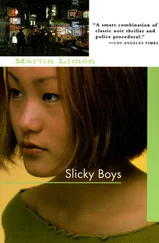Various - Our Boys
Здесь есть возможность читать онлайн «Various - Our Boys» — ознакомительный отрывок электронной книги совершенно бесплатно, а после прочтения отрывка купить полную версию. В некоторых случаях можно слушать аудио, скачать через торрент в формате fb2 и присутствует краткое содержание. Жанр: Детские стихи, foreign_antique, foreign_prose, foreign_children, на английском языке. Описание произведения, (предисловие) а так же отзывы посетителей доступны на портале библиотеки ЛибКат.
- Название:Our Boys
- Автор:
- Жанр:
- Год:неизвестен
- ISBN:нет данных
- Рейтинг книги:4 / 5. Голосов: 1
-
Избранное:Добавить в избранное
- Отзывы:
-
Ваша оценка:
- 80
- 1
- 2
- 3
- 4
- 5
Our Boys: краткое содержание, описание и аннотация
Предлагаем к чтению аннотацию, описание, краткое содержание или предисловие (зависит от того, что написал сам автор книги «Our Boys»). Если вы не нашли необходимую информацию о книге — напишите в комментариях, мы постараемся отыскать её.
Our Boys — читать онлайн ознакомительный отрывок
Ниже представлен текст книги, разбитый по страницам. Система сохранения места последней прочитанной страницы, позволяет с удобством читать онлайн бесплатно книгу «Our Boys», без необходимости каждый раз заново искать на чём Вы остановились. Поставьте закладку, и сможете в любой момент перейти на страницу, на которой закончили чтение.
Интервал:
Закладка:
SONG OF THE CHRISTMAS STOCKINGS
Six merry stockings in the firelight,
Hanging by the chimney snug and tight:
Jolly, jolly red,
That belongs to Ted;
Daintiest blue,
That belongs to Sue;
Old brown fellow
Hanging long,
That belongs to Joe,
Big and strong;
Little, wee, pink mite
Covers Baby's toes—
Won't she pull it open
With funny little crows!
Sober, dark gray,
Quiet little mouse,
That belongs to Sybil
Of all the house;
One stocking left,
Whose should it be?
Why, that I'm sure
Must belong to me!
Well, so they hang, packed to the brim,
Swing, swing, swing, in the firelight dim.
'Twas the middle of the night.
Open flew my eyes;
I started up in bed,
And stared in surprise;
I rubbed my eyes, I rubbed my ears,
I saw the stockings swing, I heard the stockings sing;
Out in the firelight
Merry and bright,
Snug and tight,
Six were swinging,
Six were singing,
Like everything!
And the red, and the blue, and the brown, and the gray,
And the pink one, and mine, had it all their own way,
And no one could stop them—because, don't you see,
Nobody heard 'em—but just poor me!
"All day we carry toes,
To-night we carry candy;
Christmas comes once a year
Very nice and handy.
Run, run, race all day,
Mother mends us after play,
We don't care, life is gay,
Sing and swing, away, away!
"Boots and little tired shoes,
We kick 'em off in glee;
It's fun to hang up here
And Santa Claus to see.
Run, run, race all day,
Mother mends us after play,
We don't care, life is gay,
Sing and swing, away, away!
"To-morrow down we come,
The sweet things tumble out,
Then carrying toes again
We'll have to trot about.
Run, run, race all day,
Mother'll mend us after play,
We don't care, we'll swing so gay
While we can—away, away!"
JOE LAMBERT'S FERRY
It was a thoroughly disagreeable March morning. The wind blew in sharp gusts from every quarter of the compass by turns. It seemed to take especial delight in rushing suddenly around corners and taking away the breath of anybody it could catch there coming from the opposite direction. The dust, too, filled people's eyes and noses and mouths, while the damp raw March air easily found its way through the best clothing, and turned boys' skins into pimply goose-flesh.
It was about as disagreeable a morning for going out as can be imagined; and yet everybody in the little Western river town who could get out went out and stayed out.
Men and women, boys and girls, and even little children, ran to the river-bank: and, once there, they stayed, with no thought, it seemed, of going back to their homes or their work.
The people of the town were wild with excitement, and everybody told everybody else what had happened, although everybody knew all about it already. Everybody, I mean, except Joe Lambert, and he had been so busy ever since daylight, sawing wood in Squire Grisard's woodshed, that he had neither seen nor heard anything at all. Joe was the poorest person in the town. He was the only boy there who really had no home and nobody to care for him. Three or four years before this March morning, Joe had been left an orphan, and being utterly destitute, he should have been sent to the poorhouse, or "bound out" to some person as a sort of servant. But Joe Lambert had refused to go to the poorhouse or to become a bound boy. He had declared his ability to take care of himself, and by working hard at odd jobs, sawing wood, rolling barrels on the wharf, picking apples or weeding onions as opportunity offered, he had managed to support himself "after a manner," as the village people said. That is to say, he generally got enough to eat, and some clothes to wear. He slept in a warehouse shed, the owner having given him leave to do so on condition that he would act as a sort of watchman on the premises.
Joe Lambert alone of all the villagers knew nothing of what had happened; and of course Joe Lambert did not count for anything in the estimation of people who had houses to live in. The only reason I have gone out of the way to make an exception of so unimportant a person is, that I think Joe did count for something on that particular March day at least.
When he finished the pile of wood that he had to saw, and went to the house to get his money, he found nobody there. Going down the street he found the town empty, and, looking down a cross street, he saw the crowds that had gathered on the river-bank, thus learning at last that something unusual had occurred. Of course he ran to the river to learn what it was.
When he got there he learned that Noah Martin the fisherman who was also the ferryman between the village and its neighbor on the other side of the river, had been drowned during the early morning in a foolish attempt to row his ferry skiff across the stream. The ice which had blocked the river for two months, had begun to move on the day before, and Martin with his wife and baby—a child about a year old—were on the other side of the river at the time. Early on that morning there had been a temporary gorging of the ice about a mile above the town, and, taking advantage of the comparatively free channel, Martin had tried to cross with his wife and child, in his boat.
The gorge had broken up almost immediately, as the river was rising rapidly, and Martin's boat had been caught and crushed in the ice. Martin had been drowned, but his wife, with her child in her arms, had clung to the wreck of the skiff, and had been carried by the current to a little low-lying island just in front of the town.
What had happened was of less importance, however, than what people saw must happen. The poor woman and baby out there on the island, drenched as they had been in the icy water, must soon die with cold, and, moreover, the island was now nearly under water, while the great stream was rising rapidly. It was evident that within an hour or two the water would sweep over the whole surface of the island, and the great fields of ice would of course carry the woman and child to a terrible death.
Many wild suggestions were made for their rescue, but none that gave the least hope of success. It was simply impossible to launch a boat. The vast fields of ice, two or three feet in thickness, and from twenty feet to a hundred yards in breadth, were crushing and grinding down the river at the rate of four or five miles an hour, turning and twisting about, sometimes jamming their edges together with so great a force that one would lap over another, and sometimes drifting apart and leaving wide open spaces between for a moment or two. One might as well go upon such a river in an egg shell as in the stoutest row-boat ever built.
The poor woman with her babe could be seen from the shore, standing there alone on the rapidly narrowing strip of island. Her voice could not reach the people on the bank, but when she held her poor little baby toward them in mute appeal for help, the mothers there understood her agony.
There was nothing to be done, however. Human sympathy was given freely, but human help was out of the question. Everybody on the river-shore was agreed in that opinion. Everybody, that is to say, except Joe Lambert. He had been so long in the habit of finding ways to help himself under difficulties, that he did not easily make up his mind to think any case hopeless.
No sooner did Joe clearly understand how matters stood than he ran away from the crowd, nobody paying any attention to what he did. Half an hour later somebody cried out: "Look there! Who's that, and what's he going to do?" pointing up the stream.
Читать дальшеИнтервал:
Закладка:
Похожие книги на «Our Boys»
Представляем Вашему вниманию похожие книги на «Our Boys» списком для выбора. Мы отобрали схожую по названию и смыслу литературу в надежде предоставить читателям больше вариантов отыскать новые, интересные, ещё непрочитанные произведения.
Обсуждение, отзывы о книге «Our Boys» и просто собственные мнения читателей. Оставьте ваши комментарии, напишите, что Вы думаете о произведении, его смысле или главных героях. Укажите что конкретно понравилось, а что нет, и почему Вы так считаете.




![Various Various - Selected List of Nimmo, Hay, & Mitchell's Publications [1890]](/books/571841/various-various-selected-list-of-nimmo-hay-mit-thumb.webp)







